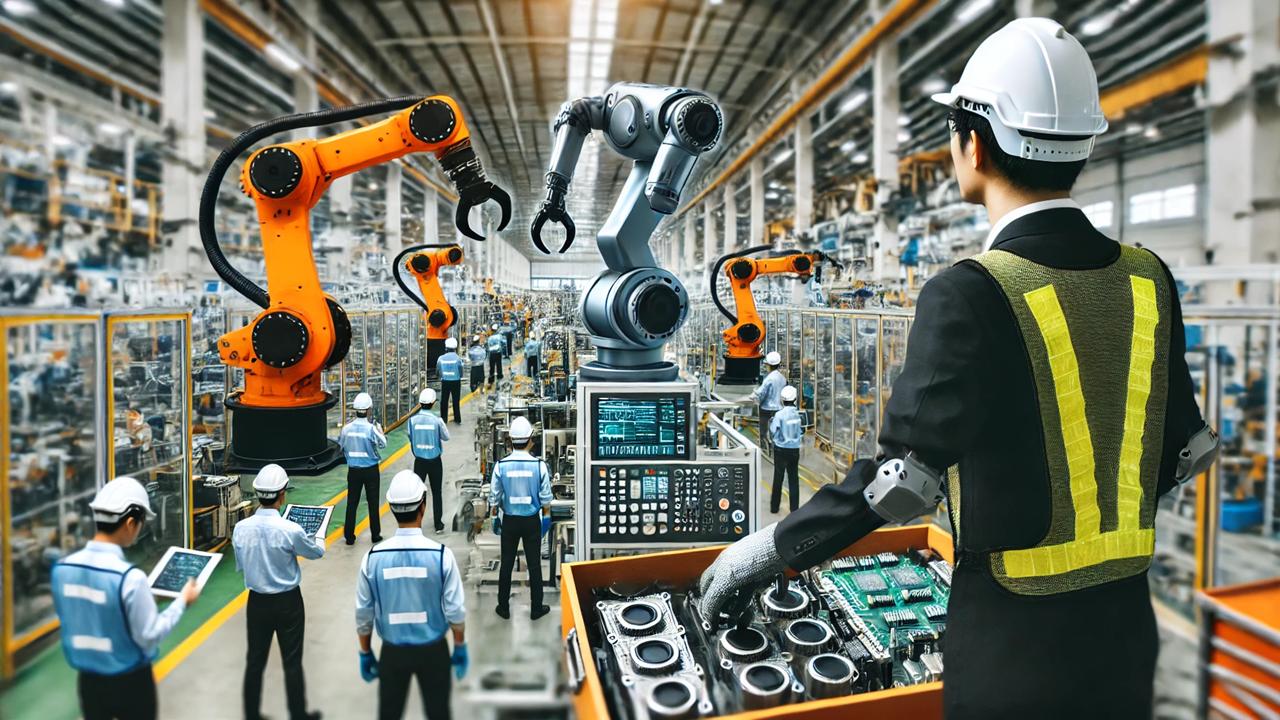ILO Workshop Promotes Responsible Business Conduct in Malaysia’s Manufacturing Sector
A workshop titled “Introduction to the Responsible Business Conduct through the Framework of the ILO MNE Declaration and the i-ESG Framework” was held on December 3, 2024, in Kuala Lumpur.

The International Labour Organization (ILO) has taken significant strides to promote Responsible Business Conduct (RBC) in Malaysia’s manufacturing sector. A workshop titled “Introduction to the Responsible Business Conduct through the Framework of the ILO MNE Declaration and the i-ESG Framework” was held on December 3, 2024, in Kuala Lumpur.
This initiative, co-organized by the ILO’s Building Responsible Value Chains in Asia (RVC-II) project and Malaysia’s Ministry of Investment, Trade and Industry (MITI), focused on elevating awareness among manufacturing enterprises regarding responsible business practices. It also emphasized the importance of Human Rights Due Diligence (HRDD) and introduced the complementary roles of the ILO MNE Declaration and the i-ESG Framework in improving labour standards and sustainability practices.
Promoting Ethical Practices in Manufacturing
The workshop attracted representatives from manufacturing enterprises who engaged in discussions on implementing good labour practices, addressing labour rights issues, and overcoming challenges in Environmental, Social, and Governance (ESG) reporting.
“There is a growing expectation for enterprises to uphold human and labour rights within their operations and supply chains. Elevating awareness of Responsible Business Conduct can significantly benefit enterprises and society,” said Zharif, National Project Coordinator of the ILO RVC-II Project in Malaysia.
i-ESG Framework: A National Initiative
MITI presented its i-ESG Framework, an initiative designed to assist manufacturing enterprises in meeting ESG reporting requirements. The framework complements international RBC standards, providing practical tools for compliance while advancing Malaysia’s economic and social goals.
Strengthening Labour Practices: Insights and Tools
Participants gained valuable insights into global trends and national initiatives that support sustainable and ethical business practices. They also shared success stories and challenges related to labour rights and ESG compliance.
The workshop addressed:
- The principles of the ILO MNE Declaration for multinational enterprises.
- The integration of RBC and HRDD in operations and supply chains.
- Strategies for effective ESG reporting aligned with the i-ESG Framework.
Expanding Outreach to Stakeholders
Similar workshops are planned for government officials, trade unions, and employer representatives to ensure a comprehensive understanding of RBC and ESG principles across all stakeholders in Malaysia’s labour ecosystem.
A Regional Initiative for Decent Work
Funded by Japan’s Ministry of Economy, Trade and Industry (METI), the ILO RVC-II Project spans four Asian countries, including Malaysia. It aims to foster responsible, inclusive, and sustainable enterprises through capacity-building programs for businesses and ILO constituents.
Zharif highlighted that such workshops are pivotal in creating responsible value chains: “By embedding RBC and ESG principles in business operations, we not only enhance compliance but also strengthen the foundation for decent work and fair treatment within the supply chain.”
A Path Towards Ethical Business Growth
The ILO’s efforts reflect a global shift toward ethical business practices, aligning Malaysia’s manufacturing sector with international standards. These initiatives contribute to building resilient enterprises that prioritize sustainability, respect for human rights, and decent work for all.
Further workshops and initiatives are expected to deepen collaboration between enterprises, policymakers, and labour organizations, ensuring the manufacturing sector thrives while upholding global and national ethical standards.
ALSO READ
Malaysia Warns Against Product Rebadging Amid U.S.-China Trade Tensions
Second Wave of Torrential Rains Threatens Malaysia and Thailand
4th India-Malaysia Joint Military Exercise HARIMAU SHAKTI 2024 Commences
Malaysia-Singapore Economic Zone Deal Postponed
Volunteers Brace for Malaysia's Monsoon-Driven Health Crisis










